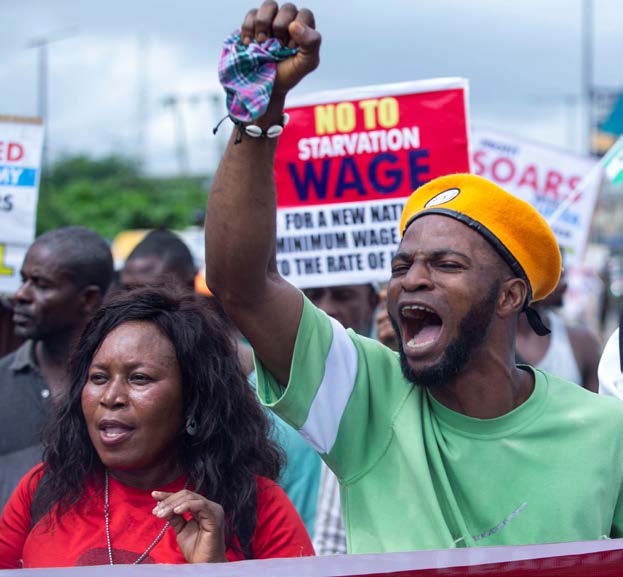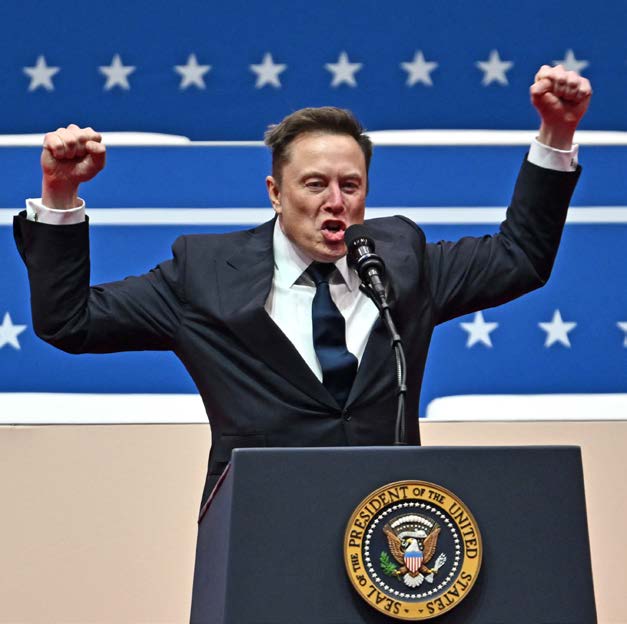Table of Contents
- 2025 State of Civil Society Report
- Overview +
- Conflict: might replaces right +
- Democracy: regression and resilience +
- Economy: the era of precarity and inequality +
- Climate and environment: heading in the wrong direction +
- Technology: human perils of digital power +
- Gender rights: backlash, resistance and persistence +
- Migrants’ rights: humanity versus hostility +
- United Nations: global governance in crisis +
- Civil society: the struggle continues +
- Acknowledgements +
- Download Report +

- The wealth gap continues to widen dramatically, with global poverty reduction stalled while billionaires keep increasing their wealth and attempt state capture.
- Economic exclusion is fuelling political volatility and protests, with young people leading many protests, which are often met with violent state repression.
- Civil society is pushing for tangible solutions, including taxes on the ultra-rich, reform of international financial institutions and universal basic income programmes.
The economic anger driving many political shifts, including rejection of incumbents and rising populism, has several sources.
In recent decades, and at least partly thanks to civil society efforts, advances were made in reducing the global share of people living in extreme poverty, but progress has stalled since the COVID-19 pandemic. On top of the pandemic’s impacts, economies are being tested by the consequences of conflict – particularly Russia’s full-scale invasion of Ukraine, which caused energy prices to rocket up – and the worsening impacts of climate change.
Hostilities may cease in Ukraine, but global realignment, impunity and US unpredictability mean new conflicts may start. Extreme weather – made more likely and frequent by climate change – is disrupting agriculture, pushing up food prices when harvests fall short. The impacts of food inflation are likely to worsen as climate targets are missed. High food and energy costs could become the new normal.
Years of neoliberal economic orthodoxy pushed by political elites have often hollowed out public services and made them more expensive. Falling global unemployment rates mask high levels of informal work and workplace powerlessness. This is particularly the case among the burgeoning gig economy, with the situation worse in low-income countries and worst for young people everywhere. Around the world, young people are leaving universities with an education but few prospects, facing potentially years of struggles to get by. Increased automation as a result of the growing applications of AI could further reduce employment prospects. Spiralling prices are leading to a housing crisis with an acute shortage of affordable homes. In many countries, young people face the prospect of never owning a home, instead handing over an increasing proportion of their income in rent.
All this adds up to an age of economic precarity. Around the world, many are forced to use all their resources just to make ends meet, and things have only become harder in recent years. Food and fuel price inflation mean money doesn’t stretch as far as it used to, worsening people’s quality of life. Small economic shocks can have big impacts. Even when economic baseline indicators suggest all is healthy, as in the USA, many see a different story when they buy their groceries, which is at least part of the reason Trump won.
Discontent is expressed in street protests whenever economic pressure grows. 2024 provided further proof that price increases of essentials or the introduction of new taxes affecting those already struggling consistently trigger public protests. Protest movements often evolve beyond their initial catalysts, voicing broader demands for a redistribution of economic and political power.

People protest against economic hardship, hunger and insecurity during Nigeria’s Independence Day celebrations in Lagos, Nigeria, 1 October 2024. Photo by Akintunde Akinleye/Reuters via Gallo Images.
The year saw a wave of protest across several African countries, led by first-time protesters from Generation Z. It started in Kenya, triggered by a plan to introduce sweeping tax increases. The measures were quickly reversed, but the protests continued. Similar protests followed in countries including Ghana, Nigeria and Uganda, all of which have large youth populations facing economic hardship and limited opportunities.
Because protests inspired by anger over the cost of living frequently expand into broader demands about economic and political power, states often respond with violent repression. In Kenya, alongside security force violence against protesters, a disturbing pattern emerged of young activists being abducted by armed plainclothes personnel widely suspected of being state agents. Similar heavy-handed responses have followed in other countries, including lethal security force violence in Nigeria.
Economic anger fuelled protests elsewhere. In Pakistan-controlled Kashmir, protests erupted in May in response to the rising costs of food, fuel and utilities, quickly escalating into violence. In Bolivia, thousands of supporters of former president Evo Morales marched on the capital, La Paz, in January 2025 amid an inflation, currency and fuel crisis. In this polarised country, protests are likely to recur during an election year. In the French Caribbean islands of Guadeloupe and Martinique, 2024 saw sometimes violent protests sparked by food inflation, which connected with anger at colonialism. Further protests triggered by high costs and tax rises are inevitable during 2025, and violent state repression is likely in countries where civic space is constrained.
Global institutions often exacerbate the problems. The prescriptions imposed as loan conditions by the International Monetary Fund (IMF) frequently become the focus of public anger. The tax increases that sparked protests in Kenya, for example, were part of an IMF-mandated package that also included public spending cuts and privatisation measures. In Nigeria, President Bola Tinubu followed World Bank recommendations to end fuel subsidies on his first day in office and subsequently devalued the currency, making imported goods more expensive and helping create the conditions for protests.

Elon Musk speaks during Donald Trump’s inaugural parade in Washington DC, USA, 20 January 2025. Photo by Angela Weiss/AFP via Getty Images.
But it’s not the same story for everyone. The gap between the super-rich and everyone else keeps widening. In 2024, the world’s 2,769 billionaires added another US$2 trillion to their wealth, the equivalent of around US$5.7 billion a day. Over the past decade, the world’s richest one per cent have added US$42 trillion to their wealth. Five years on from the start of the pandemic, the pattern revealed then has worsened: the ultra-rich are getting richer while everyone else is struggling. And they’ll perpetuate their power by passing on vast fortunes to their heirs: 36 per cent of billionaire wealth now comes from inheritance.
And this super-rich class is getting more involved in politics than ever before. Ultra-wealthy elites have always leveraged their influence to shape government policies on taxation, labour rights and business regulation to their advantage. Oligarchic power has long been a feature of less democratic states. But the Trump administration has assembled a cabinet that includes an unprecedented number of billionaires, raising concerns that the USA too is becoming an oligarchy. US policies that have global implications will be shaped by people with no clue how it feels to be poor and vulnerable but plenty of ideas about how to protect and expand their wealth. Wherever it exists, oligarchy undermines democracy and human rights.
The numerous companies that have altered their policies to accommodate the Trump administration, including by abandoning diversity, equity and inclusion (DEI) initiatives after Trump ended federal DEI programmes, demonstrate that businesses will readily compromise when profitability is at stake. Similarly, in France’s high-stakes election, business leaders openly expressed their preference for the National Rally rather than the leftist coalition having power. In India, billionaire industrialists Gautam Adani and Mukesh Ambani, who maintain close ties with Modi, have dramatically expanded their corporate empires and consolidated unprecedented control over critical economic sectors under his rule. Big business and fascism can coexist quite happily.
Inequality is reproduced in key global institutions. The IMF and World Bank remain dominated by global north interests, with governance structures unchanged since their creation following the Second World War. The economic neoliberalism they push on global south countries reflects this, disproportionately burdening the most vulnerable and widening economic inequalities. Civil society’s proposals to reform these institutions must be seriously considered.
Change is needed, and the ideas are out there, developed through years of civil society research, analysis and advocacy. They include proposals to reform international financial institutions and introduce a universal basic income. Meanwhile, the four-day work week concept, pioneered by civil society to restore healthy work-life balances, continues to gain traction. As of January 2025 in the UK, 200 companies had permanently adopted four-day weeks, benefiting some 5,000 employees, with trials confirming no reduction in productivity. Younger workers in particular, where labour market conditions grant them leverage, are increasingly demanding stronger labour rights as well as shorter working weeks and more flexible remote work arrangements.
But it’s hard to see progress without some attempt to reckon with the growing and grotesquely visible gap between the ultra-rich and everyone else. If the global economy only really works for a small minority, then in the interests of justice there must be some measure of redistribution.
Proposals for wealth taxes and windfall taxes – such as on the energy companies that through no genius of their own banked record profits because Russia invaded Ukraine – should be taken seriously. Wealth taxes alone could unlock over US$2.1 trillion a year. Inheritance taxes could help tackle the perpetuation of elite economic power and the inequalities that persist across generations. The G20 club of the world’s major economies is rarely an arena civil society looks to for progressive moves, but it made some progress at its 2024 summit in Brazil when leaders agreed on the need to tax the super-rich.
There’s also a huge global problem of tax shortfalls: US$492 billion a year is lost as corporations and people exploit offshore tax loopholes. Where oligarchs hold sway, tax advantages are likely to grow. But if the G20 has begun to acknowledge the problem, it means it’s time to start building momentum for reform. One promising international process underway, to develop a UN global tax treaty by 2027, provides an opportunity to put international cooperation on a firmer footing to recoup more of the lost tax.
A strong treaty and wealth taxation should be major areas of focus for civil society advocacy in 2025, including at the forthcoming International Conference on Financing and Development, and in the years to come. The resources unlocked should be used to build a more just and equitable world.